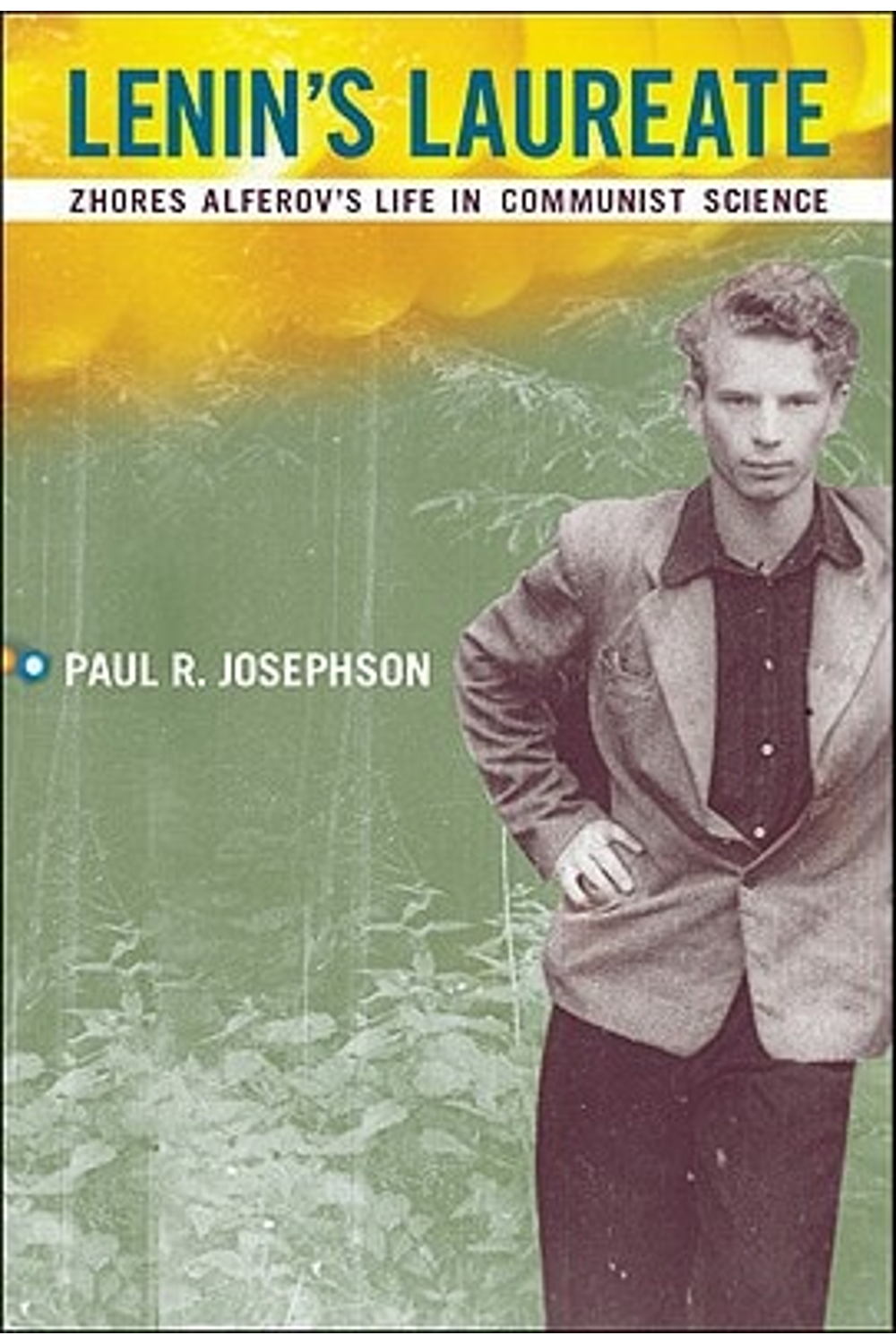Uncover the remarkable life and scientific contributions of Zhores Alferov, the Nobel Prize-winning physicist who revolutionized semiconductor technology, in Paul R. Josephson’s compelling biography, *Lenin’s Laureate: Zhores Alferov’s Life in Communist Science*. This insightful account delves into Alferov’s journey through the Soviet scientific landscape, offering a rare glimpse into the achievements and challenges of state-sponsored research from the Stalin era to post-Soviet Russia. Alferov’s groundbreaking work on heterostructures led to innovations like modern LEDs and high-speed transistors, transforming electronics worldwide. Beyond his scientific breakthroughs, the book explores the complex interplay of politics, ideology, and scientific progress within the Soviet system, examining how Alferov navigated the bureaucratic hurdles and political pressures of his time. Drawing on extensive archival research and personal interviews, Josephson paints a vivid portrait of a brilliant scientist whose career mirrors the tumultuous history of the Soviet Union. Discover the untold story behind the scientific race and the personal sacrifices made in the name of progress. This illustrated edition offers a unique perspective on the intersection of science, politics, and personal ambition.
Lenin’s Laureate: Zhores Alferov’s Life in Communist Science (Transformations: Studies in the History of Science and Technology)
26,06 $
In stock
The life and work of a leading Soviet physicist and an exploration of the strengths and weaknesses of Soviet science from Stalin through Gorbachev.
In 2000, Russian scientist Zhores Alferov shared the Nobel Prize for Physics for his discovery of the heterojunction, a semiconductor device the practical applications of which include LEDs, rapid transistors, and the microchip. The Prize was the culmination of a career in Soviet science that spanned the eras of Stalin, Khrushchev, and Gorbachevand continues today in the postcommunist Russia of Putin and Medvedev.
In Lenin’s Laureate, historian Paul Josephson tells the story of Alferov’s life and work and examines the bureaucratic, economic, and ideological obstacles to doing state-sponsored scientific research in the Soviet Union. Lenin and the Bolsheviks built strong institutions for scientific research, rectifying years of neglect under the Czars. Later generations of scientists, including Alferov and his colleagues, reaped the benefits, achieving important breakthroughs: the first nuclear reactor for civilian energy, an early fusion device, and, of course, the Sputnik satellite. Josephson’s account of Alferov’s career reveals the strengths and weaknesses of Soviet sciencea schizophrenic environment of cutting-edge research and political interference. Alferov, born into a family of Communist loyalists, joined the party in 1967. He supported Gorbachev’s reforms in the 1980s, but later became frustrated by the recession-plagued postcommunist state’s failure to fund scientific research adequately. An elected member of the Russian parliament since 1995, he uses his prestige as a Nobel laureate to protect Russian science from further cutbacks.
Drawing on extensive archival research and the author’s own discussions with Alferov, Lenin’s Laureate offers a unique account of Soviet science, presented against the backdrop of the USSR’s turbulent history from the revolution through perestroika.
| Authors | |
|---|---|
| Binding | |
| Condition | |
| ISBN-10 | 0262014580 |
| ISBN-13 | 9780262014588 |
| Language | |
| Pages | 320 |
| Publisher | |
| Year published | |
| Weight | 567 |
| Edition | Illustrated |
| Dewey decimal | 509.47/0904 |
- Additional information
- Currencies
- USD – United States dollar
- EUR – Euro
- GBP – Pound sterling
- CNY – Chinese yuan
- BRL – Brazilian real
- MXN – Mexican peso
- JPY – Japanese yen
- PHP – Philippine peso
- THB – Thai baht
- PLN – Polish złoty
- CAD – Canadian dollar
- MYR – Malaysian ringgit
- AUD – Australian dollar
- TWD – New Taiwan dollar
- CZK – Czech koruna
- SEK – Swedish krona
- HUF – Hungarian forint
- ILS – Israeli new shekel
- CHF – Swiss franc
- HKD – Hong Kong dollar
- DKK – Danish krone
- SGD – Singapore dollar
- NOK – Norwegian krone
- NZD – New Zealand dollar

